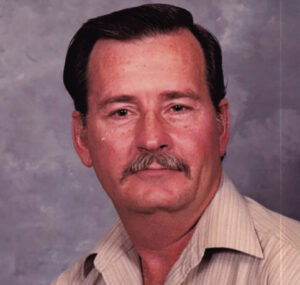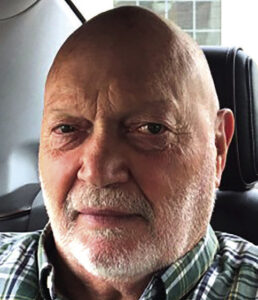Drug court reduces recidivism, changes lives in Morgan County
By Eric Fleischauer
For the Enquirer
When Sarah Tait entered Morgan County Drug Court in 2017 at the age of 20, she had been addicted to heroin for three years, had overdosed three times and was facing felony charges of possession of a controlled substance and possession with the intent to distribute heroin after a 2015 arrest.
“You see, heroin has a way of stealing your soul and taking everything worth having in life away,” Tait said.
Despite her arrest, a month after graduating from Austin High, she could not shake her addiction.
“In 2017 I was given the chance to plea into drug court. When I entered this program, I was 92 pounds and dead inside,” she said. “I was scared and young, and I had no clue what to expect. All I knew was I was tired of living the way I had been living and I wanted a new life – plus, I didn’t want to go to prison.”
Entering drug court is a gamble. Tait, like all drug court participants, could enter the program only by pleading guilty. Successful completion of the program leads to dismissal of the felony charge. Termination from the program leads to sentencing based on the guilty plea.
Drug court is also arduous. In addition to an initial assessment followed by intensive treatment and counseling, it requires numerous random drug screens – as many as three per week early on – and attendance at court sessions once or twice a month. Participants must commit to 80 volunteer hours.
It also costs money, which is in short supply for participants, who often have lost their jobs because of their addiction.
It’s not a short commitment, either. The fastest a person can complete the program is 13 months, but unlike probation, there is no set end date. The average participant is cleared to graduate in about 18-20 months, according to coordinators, and some remain in the program for years.
Despite the cost and time commitment, far more people seek to enter the program than its tiny staff and shoestring budget can accommodate. Aside from an annual grant of about $30,000 from the Alabama Administrative Office of Courts – some of which is used for direct assistance to participants – it is almost entirely funded by its typically impoverished participants with help from Community Corrections, which likewise is almost entirely funded by fees from typically impoverished probationers.
Calls for the legislature to fund the drug courts have thus far gone unanswered, and recent funding shortages that forced staffing cuts mean the Morgan County Drug Court – which now has one full-time and one part-time staff member – is supervising about half the participants it was able to handle in 2015.
Fewer than half of those who apply for the drug court program are admitted, and a backlog of applications means many who might otherwise seek to enter the program elect against it due to anticipated delays.
“We are specifically looking for the folks who can’t stay out of the criminal justice system because of the substances they use. That’s who we’re targeting,” said Tammy Jolley, coordinator of the program.
But Tait, like most who enter drug court, was desperate, and she persevered.
“I have been through a hell of a lot while being in this program,” Tait said. “I’ve been that person dodging drug tests, praying daily I wouldn’t get in trouble. Yet no matter how bad I messed up and made poor choices, drug court has always been there.”
The Morgan County Drug Court was formed in 2008 by former Judge Glenn Thompson and is housed in tiny offices in Community Corrections on the first floor of the Morgan County Courthouse. Circuit Judge Charles Elliott presides over the program, which has been coordinated since its inception by Jolley.
A legislative goal in authorizing drug courts was to reduce recidivism – the likelihood of another arrest after incarceration – in drug-related felonies. Reducing recidivism saves the state money by reducing the prison population.
Tait and graduates of drug court typically focus less on recidivism than on personal transformation.
“I stand here alive and breathing today because of Morgan County Drug Court,” Tait said. “There is no telling how many people are alive and well today because of drug court.”
Data shows the impact
Elliott, who got a master’s in psychology before going to law school, thrives on those testimonials, but he also wants to see hard evidence that the program is effective.
“Give me data, give me research; don’t give me the case studies and the feel-goods. Give me numbers,” he said. “And the numbers say it works.”
The recidivism rate – the percentage of graduates who are re-arrested within three years – of the Morgan County Drug Court is 13.43 percent. That compares to a national recidivism rate for those imprisoned for drug-involved crimes of about 65 percent.
Even for those terminated from Morgan County Drug Court before they complete the program, the recidivism rate is 31.82 percent.
“I don’t say this lightly,” said Elliott, “but miracles happen at drug court. Absolute miracles.”
Another success story
Jayna Marshall’s life was falling apart well before she and her husband were arrested for methamphetamine possession in March 2016.
“Meth is the devil. It gets ahold of you, and it will not let go,” she said.
Marshall, who has three children, had been using for about a year before her arrest. She and her husband had separated, and she dated a man who introduced her to the drug.
“When my husband left, I was crushed. I was broken. I loved that man more than life itself. When he left, I was looking for something to fill that void,” she said. “When you first start using meth, you’re like on this really good, happy, euphoric feeling. It sounds terrible, but it made me feel like my husband made me feel.”
The good times soon were replaced by self-loathing – but not with the ability to stop using.
“You lose your self-confidence. You lose a sense of who you are. I became a shell of who I was. I would look at my mirror, and I had no idea who I was looking at. It was just a blank stare,” the 35-year-old said. “It got to the point where I wouldn’t look in a mirror because I didn’t want to see myself.
“But then I would go right back and get high again.”
During her year on meth, she lost her driver’s license when she failed to make a court appearance for a minor traffic violation. “I had a court date while I was on drugs and had no idea. I probably knew and just forgot because obviously I was high.”
When she was arrested on the drug charge, she lost custody of her children. Desperate to get them back, she began submitting to drug screens and counseling from the Department of Human Resources and soon entered drug court.
She took classes, received counseling and attended Alcoholics Anonymous and Narcotics Anonymous as part of the drug court program. Jolley used grant money to help pay for reinstatement of Marshall’s driver’s license – critical if she was to report for mandatory drug screens or hold a job.
While in the drug court program, Marshall’s husband — who had also entered the program — was struck by a car and killed.
“At this point we had had our kids back for like a year. We were making progress. We were getting there. Then this happened,” she recalled.
A year later, her house burned down.
“I stayed clean because of drug court,” she said.
The individual attention she received from Jolley, the only full-time employee of the program, made all the difference, she said.
“I went up there several times and just sat there and cried. ‘I’m overwhelmed right now. I don’t know what to do. I need some help.’ She’s more than just your probation officer; she’s your friend,” Marshall said. “They understand drugs are not who you are. They were there for me. I never thought they would be.
Tammy was there every step of every day making sure I was OK, making sure my kids were OK.”
Marshall graduated from drug court in April, and her felony charge was dismissed. Wednesday, Marshall celebrated five years of sobriety.
“If you do the work and put in your mind that, ‘I’m going to do this, I’m going to beat this, I am better than this,’ you will do it. You can,” she said. “I am living proof that no matter what you go through, you can beat it. I did it, and I’m still doing it every day.”
Tait, still in drug court, said she has felt a similar transformation.
“Before drug court I viewed myself as useless and a waste of precious space on this Earth,” she said. “Drug court helped teach me that is so far from the truth. Every day I have sober, I am a miracle.”
The individual attention received by drug court participants, mentioned by Tait and Marshall, is intense.
Every other Friday, before the participants enter the courtroom, Elliott meets with a team that includes Jolley, other providers involved in treatment, defense attorneys, prosecutors and frequently law enforcement officers. They go through every one of the 65 participants’ files, noting drug screen results, behavioral changes, successes and failures.
When court goes into session, Elliott speaks with each participant, asking questions, praising them and sometimes sanctioning them.
Failing a drug screen generally leads to more intensive treatment rather than sanctions. Failing a drug screen and lying about drug use is a good way to end up in jail.
“I want them to be honest,” Elliott said. Participants are asked before a drug screen whether they have used drugs. If they deny it and then test positive, but are quick to acknowledge the test’s accuracy, he takes that into account.
“Maybe it needs to be a short jail sanction. Or maybe you need to go to the jail this weekend, but you’re going to check yourself in Friday at 8 at night and get out Saturday morning, but you’re going to clean the drunk tank.”
If jail time would cost a participant their job, Elliott will sometimes order a curfew and electronic monitoring or extra home visits by law enforcement officers.
“My job is to hold people accountable,” Elliott said. “When people come into drug court, generally they are in the deep, deep throes of addiction. … They can say they really want to get sober, but for some people really early on, it’s unreasonable to expect that of them.
“For someone who’s been an IV meth user or IV heroin user for years, them being sober for a day or two days is a huge deal. At the very beginning, we want to really focus on short-term goals, and we want to incentivize and reward people for short-term achievements.”
Jolley said addicts who fail to gain sobriety through treatment or through the conventional criminal court system frequently find success in drug court – an amalgam of the two.
“You will hear folks say, ‘I’ve been on probation before or been to treatment before, and neither one worked. But when I had drug court, and I had the accountability of supervision, and I had the services of treatment, and I didn’t have any choice but to do that thing that was best for me, that’s when things started to change,’” Jolley said. “My team members are amazing, but we don’t have any smoke and mirrors or super magic. You look at what works, and you find a way to get people to do it.”










